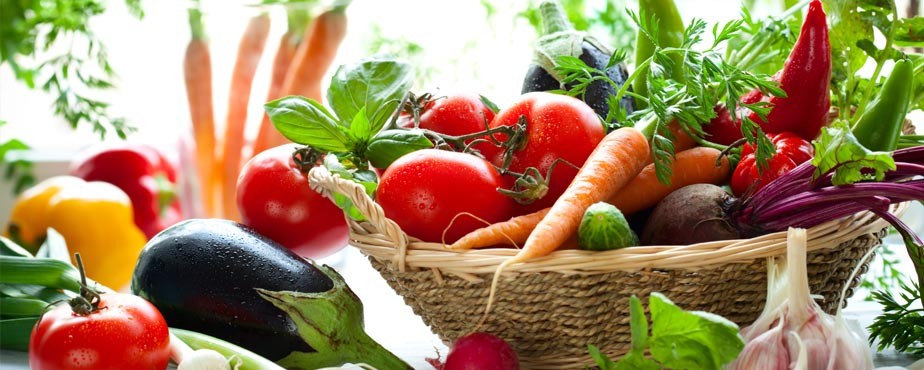How to Make Produce Last Longer
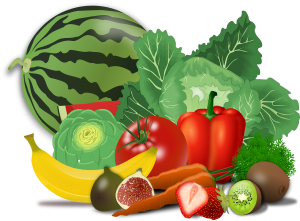
Oh my word, has the grocery store gotten expensive lately! I don’t know about you, but I am doing all that I can to save money and to make the most of the foods that I am buying. A bit part of this for me was to learn how to make perishable foods, such as produce, last longer.
While it may seem financially smarter to buy more non-perishable foods, it really isn’t because you need healthy foods in your life! Healthy foods typically mean fewer trips to the doctor which saves you money overall. When stored properly, you really can make produce last longer and save you from throwing food away.
How to Make Produce Last Longer
Buy Produce with a Longer Shelf Life
Some produce simply last longer than others. Be sure to stock up on some of the following items the next time you head to the produce section:
- Cauliflower
- Cabbage
- Brussel Sprouts
- Collards
- Kale
- Carrots
- Radishes
- Turnips
- Winter Squash (Pumpkin squash, spaghetti squash, etc)
- Apples
- Pears
- Oranges
- Lemons
Store Your Vegetables Properly
Be sure to store your fruits and veggies in the proper way. This isn’t always the same, so be sure and research how to best store each of them. Here are some examples:
- Leafy vegetables (lettuce, etc) should be stored in a plastic bag with a paper towel in a produce drawer in the fridge.
- Potatoes and squash should be stored in a cool, dark place.
- Root vegetables should be stored in the vegetable drawer in the fridge.
- Bananas should be stored at room temperature, but away from other produce.
Separate Them
Produce should be separated from other produce when storing. Many types of produce release ethylene gas and many types of produce are also sensitive to ethylene gas. Storing them away from each other is helpful in preventing them from going bad.
$5 OFF Fresh Fruits and Veggies and $2 OFF Pork Sausage at Whole Foods!
Swinging by Whole Foods for some fresh produce? Don’t drop your whole paycheck! Through 3/21/17, you can get $5 off you $20 purchase of fresh fruits and vegetables! You can also get $2 off your $10 purchase of fresh pork sausage! Just scan the ecoupon in the Whole Foods Market app at checkout.
Excludes pre-cut produce, platters, salad bar, and prepared/cooked foods items.
Saving Star: 20% Off Any Single Purchase of Loose Cherries!
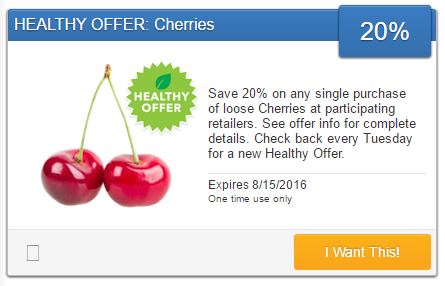 Here’s SavingStars new coupon for the week! Today, they have an offer for 20% off any single purchase of Cherries! (Expires 8/15/2016) Product coupons can sometimes be hard to come by so this is an awesome coupon to see. If you don’t have a Saving Star account you will need to create one.
Here’s SavingStars new coupon for the week! Today, they have an offer for 20% off any single purchase of Cherries! (Expires 8/15/2016) Product coupons can sometimes be hard to come by so this is an awesome coupon to see. If you don’t have a Saving Star account you will need to create one.
Never heard of Saving Star? Basically you can create an account with SavingStar and download eCoupons onto your Shopper’s Card. Anytime you purchase those products and use your eCoupons, the same amount will be put into your SavingsCard Account. You can then redeem those points for things like FREE Gift Cards to Amazon or Paypal.
Here is how to get all set up and ready to go:
- Create an account on SavingStar
- Then, add your Shopper’s Card to your account.
- Browse for Grocery Store eCoupons and add them to your card.
- At checkout, your purchase total will stay the same and the money is put into your SavingStar Bank.
**Any store that has a shopper’s card can have eCoupons put on them through SavingStar. YAY! Also, please note that your total WILL NOT change with the eCoupons on your card. Instead of your grocery total lowering, you will have the same amount put into your account to earn free gift cards instead.
Target Cartwheel Offer: 50% Off Bananas! Plus Save an Additional $.25 with Ibotta App!
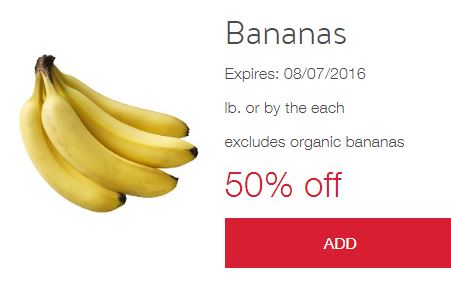 Target has a new cartwheel offer for 50% off bananas! This offer is a “hidden” offer and can only been seen when you log onto your account on a computer. You can then add it to your account and use it the same way you do other cartwheel offers. Then you can also submit for the $.25 Ibotta rebate to save even more!
Target has a new cartwheel offer for 50% off bananas! This offer is a “hidden” offer and can only been seen when you log onto your account on a computer. You can then add it to your account and use it the same way you do other cartwheel offers. Then you can also submit for the $.25 Ibotta rebate to save even more!
If you’re not sure how to use the Target Cartwheel app, you’ll want to checkout this video! If you’re not using this app you definitely need to start! It’s a great way to save money on food, clothing, baby items, electronics and so much more.
Prepworks from Progressive Lettuce Keeper – $13.28!
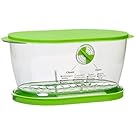
List Price: $36.55
You Save: $23.27 (64%)
Price: $13.28
Don’t have a Prime membership? Get a one month free trial! Click here for details!
Get Cash Back This Week on Produce, Milk & More!

Checkout 51 is the easiest way to save money on the brands you love! We’re currently saving over half a million Americans and Canadians money every day and have much larger plans for expansion!
All our members have to do is follow these simple steps:
- Browse the offers that are updated every Thursday
- Buy the products from any store
- Take a photo of your receipt to redeem your deal
- Get cash back!
A PYP Best Blog! Best Practices for Produce Storage!
Just in case you missed this article on the best storage practices for produce the first time we shared it a couple of years ago, we are republishing it. After we published this blog originally, we got an awesome response. This is one of the PYP Best Blogs!
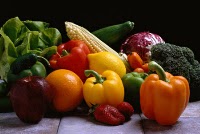 For a couple of years now I have been participating in produce cooperatives. I sometimes end up with more produce than I can use in a week, and sometimes I only participate in a monthly coop so I want to extend the life of my produce as long as possible.
For a couple of years now I have been participating in produce cooperatives. I sometimes end up with more produce than I can use in a week, and sometimes I only participate in a monthly coop so I want to extend the life of my produce as long as possible.
After a bit of research I found that there were things that I was storing incorrectly. Now I am finding that not only do I have more refrigerator space, but my produce is maintaining the quality longer.
Apples – Avoid washing apples before storing. Remove any spoiled apples. Put in a plastic bag in the coldest part of the fridge or store in a cool place no longer than 6 weeks. Warning: storing apples next to produce like broccoli, cabbage, cucumbers, greens or cauliflower will cause these veggies to spoil faster. Apples give off ethylene gas, which causes faster ripening. (Or, put an apple in a bag with fruits such as peaches, plums and bananas to speed up ripening.)
Artichoke – Refrigerator life: 4 to 5 days. Add a few drops of water to a plastic bag.
Butternut Squash – Store in a dry area with good air circulation up to 6 mos. Winter squash should not be refrigerated unless cut. Stored in a cool, dry, well-ventilated area away from light, it will keep for up to three months. Cut squash will keep 1 week when wrapped tightly and refrigerated.
Cabbage – Whole Refrigerator life: 1 to 2 weeks in a plastic bag.
Cabbage – Cut Refrigerator life: 1 to 2 days if wrapped tightly in plastic wrap.
Carrots – Refrigerator life: Very variable. Store in their original plastic bag.
Cauliflower – Whole, Refrigerator life: Up to 5 days. Store stem-side up in a plastic bag.
Celery – Refrigerator life: Up to 2 weeks. Store in a plastic bag.
Cherries – Cherries are highly perishable; refrigerate ASAP. Sort carefully and place loosely in a shallow container so that air can circulate. Wash cherries just before using. For highest quality, fresh cherries should be stored only 1 or 2 days. Cherries make a guilt-free snack: they’re fat-free, low in calories, and rich in vitamin C, vitamin A and beta-carotene. I love pitting them and freezing in a single layer and then transfer to a freezer bag.
Cilantro – Wash in cool water, remove dead stems/leaves, snip ends. Pat dry and place stems in cup with water but avoid submerging the leaves. Cover with a plastic bag/wrap and refrigerate. Change water if it becomes murky. Can also store, prepped as above, wrapped with a damp paper towel in a plastic bag. Most fresh herbs will last more than a week stored this way.
Corn – More than any other vegetable, sweet corn tastes best when it’s fresh from the garden. The minute it’s picked its sugar content starts turning to starch.
Cucumber – Refrigerator life: 1 week if waxed; less if not waxed.
Eggplant – Refrigerator life: 3 to 4 days. Store in a plastic bag.
Garlic – Shelf life: A few weeks to a few months, depending on size. Store in a dark, cool spot.
Grapes – Avoid washing grapes before storing them. Check through bunches for spoiled grapes and remove; put grapes in a plastic bag in your fridge and store for a week max. Wash under cold water just before serving.
Green beans – Refrigerator life: 3 to 5 days. Store in a plastic bag.
Jalapenos – Keep cool and dry. If you refrigerate them, first remove them from the plastic produce bag; otherwise they’ll become soft and moldy. Generally they’ll keep for 3-4 days. Once the skin begins to wrinkle, it loses potency, and if you’re roasting or blanching them, the skins will be difficult to peel.
Leafy Vegetables – Refrigerator life: 3 to 5 days. Wrap in a damp paper towel and place in a plastic bag.
Leeks – Refrigerator life: Up to 1 week. Loosely wrap in a plastic bag.
Lettuce – Refrigerator life: Lettuce stored in sealed plastic bags in the crisper will last from a few days to 2 weeks. The firmer the lettuce the longer it will keep; iceberg up to 2 weeks, Romaine 10 days, butter and leaf lettuces for 4 days. Do not store with melons, apples, pears, or other ethylene gas-emitting fruits as they will cause the lettuce to turn brown.
Mangos – A few black spots on the skin are typical of ripe mangoes. Put in a paper bag to ripen at room temp (two will ripen faster than one) and keep in a cool place, such as a cupboard. Move to fridge when ripe and use within a few days.
Mushrooms – Prepackaged mushrooms can be stored, unopened in the refrigerator for 5 to 7 days. Once opened, mushrooms should be moved to a paper bag and refrigerated.
Nectarines – Store at room temperature until fully ripe. Once fully ripe, store them in the fridge for no more than a 2 of days. Nectarines stored longer may lose their juicy flavor. Use a little lemon or other citrus juice on the cut areas to retard the browning affect.
Onions – Cut, Refrigerator life: 2 to 3 days if tightly wrapped in plastic wrap.
Onions – Green, Store green onions/scallions away from odor-sensitive foods such as corn and mushrooms, which will absorb the odor of the onions. Remove bands and damaged leaves and store in plastic bags in the crisper. They’ll last up to 5 days.
Onions – Whole, Shelf life: 3 to 4 weeks. Store in a cool, dry, open space. (Although my neighbor stores them for MONTHS in her garage!
Oranges – Store citrus at room temp if you’ll eat it in a week or so, or it will keep in the crisper for 6-8 weeks. Citrus is ripe when picked. Surface marks usually do not affect the fruit inside.
Peas – Refrigerator life: 1 to 2 days. Store in a plastic bag.
Peppers – Refrigerator life: Up to 1 week. Store in a plastic bag.
Potatoes – New, Shelf life: 1 week. Store in a cool, dark, dry place.
Potatoes – all-purpose and baking, Shelf life: Store in burlap, brown paper, or perforated plastic bags away from light, in the coolest, non-refrigerated, and well-ventilated part of the house. They can last up to 3 months, but more realistically, 3-5 weeks. Don’t store onions and potatoes together, as the gases they each give off will cause rot.
Pumpkin – Shelf life: Up to 1 month in a cool, dry place.
Spinach – Untie, remove blemished leaves, wash thoroughly in cold water, spin dry, and refrigerate in plastic bag for 2-3 days. Rich in anti-oxidants, loaded with folic acid, vitamin K, magnesium, manganese.
Squash (Winter) – whole, Shelf life: Up to 3 months. Store in a cool, dry place.
Squash (Winter) – cut, Refrigerator life: Up to 1 week if wrapped tightly in plastic.
Squash (Summer) – Refrigerator life: Up to 1 week. Store in a plastic bag.
Strawberries – Strawberries are extremely perishable and should be refrigerated immediately. Wash just before enjoying. Refrigerate in a single layer on a paper towel in a moisture-proof container. Eat them within 72 hours, or freeze up to 10 mos. Ideally, let come to room temp before serving to bring out best flavor. Nutritional powerhouses: vitamin C, fiber, folic acid, phytochemicals.
Sweet Potatoes – Shelf life: Up to 1 month if stored in a cool, dry place; up to 1 week if stored at room temperature. If refrigerated, their natural sugar will turn to starch and ruin the flavor.
Tomatoes – Shelf life: Up to 2 days once fully ripe. Store at room temperature for the best flavor. Tomatoes should never be in the fridge until they have been cooked, cut or put into a raw dish like a salsa, or are fully ripe and would spoil if left at room temp. Place tomatoes stem end up, in a sealed paper bag with or without ethylene-producing fruit such as bananas. Refrigerated ripe tomatoes will taste better if brought to room temp before eating.
Watermelon – Uncut watermelons keep at room temp for up to 2 weeks. Store cut watermelons in fridge. Cover cut surface loosely with plastic wrap.
Tips for Cleaning Fruits and Vegetables
As spring sets in we enjoy more sunny days and warmer weather. Gardens and farms across the country begin to send their produce out and it will soon appear at the local farmers markets and produce sections of grocery stores. Their colorful displays call to me, begging me to take them home. I feel it’s important that we get our daily dose of fresh fruits and veggies. I enjoy purchasing fresh looking produce and I love it even more if it’s from a local farm.
Bringing home this colorful array of nature’s goodness always brings questions from my kiddos. “Can I eat that?” or “I’m hungry.” are just a few of the first things I hear as I try to put away the groceries. Sometimes I even find an open contain of strawberries or bags of grapes with about half missing before I can even get them into the fridge. I guess this is just to be expected living in a house with 4 growing boys.
I have to admit this makes my stomach turn a little when I see the fruits and veggies missing. I always think who touched that or what pesticides were on that? Maybe I’m a little OCD when it comes to cleaning my fruits and veggies but I really feel like it’s important.
It is estimated by federal health officials that nearly 48 million people get sick by contaminated food each year. This is often caused by produce that has been contaminated. There are many ways produce can become contaminated. It can happen during the growing season, by animals, by harmful substances in the soil and water, and by the many people that handle the produce as it is processed from one place to another. We can even contaminate produce after we purchase it by the way it is handled and prepared. All of this heightens my OCD about cleaning fruits and vegetables before they are eaten.
So here are a few tips I’ve picked up for and thought I would pass along.
1. Always wash your hands for about 20 second with warm soapy water before and after preparing produce.
2. Cut away any damage or bruised areas of the produce before preparing.
3. Always wash produce before you peel it. This prevents dirt or bacteria from being transferred from the outside of the fruits or vegetables to the inside.
4. Use a clean vegetable brush to scrub firm produce like melons.
5. Throw away the outer leaves of lettuce and cabbage.
6. Dry fruits and vegetables with a clean cloth or paper towel.
Follow these tips to enjoy healthy and cleaner produce.

